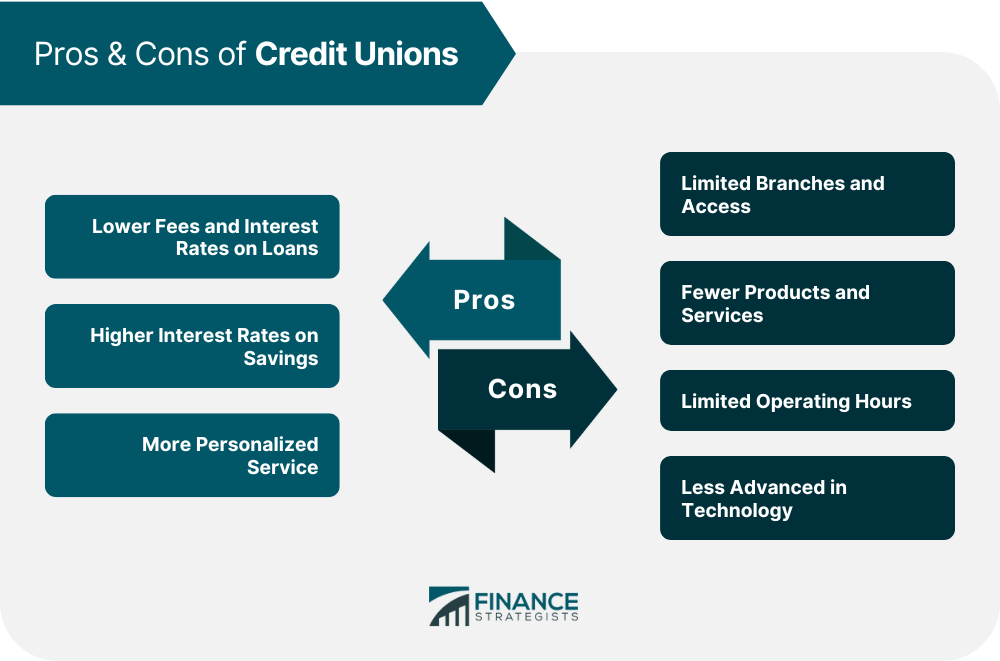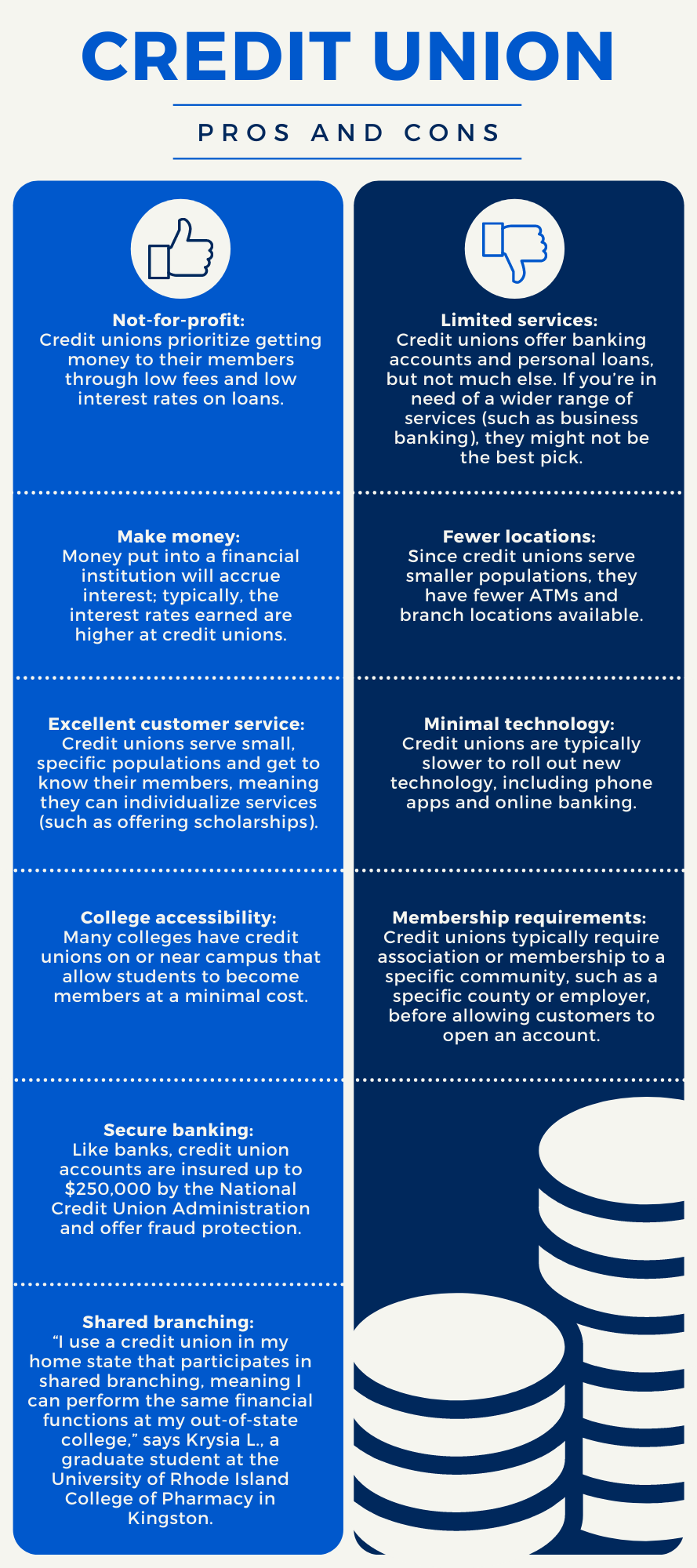Wyoming Credit: Your Neighborhood Resource for Financial Safety and Development
Wyoming Credit: Your Neighborhood Resource for Financial Safety and Development
Blog Article
Unlocking the Perks of Credit Scores Unions: Your Guide
In the realm of banks, cooperative credit union stand as a distinct and often underexplored option for those seeking an extra individualized method to banking. As we look into the details of credit history unions, a globe of benefits and possibilities unfolds, providing a look right into a financial landscape where community values and member-focused solutions take facility phase. From their humble beginnings to their modern-day influence, understanding the essence of cooperative credit union could potentially improve the means you check out and handle your financial resources.

Background of Lending Institution
Cooperative credit union have an abundant history rooted in the participating activity, going back to the 19th century. The idea of credit score unions became an action to the economic requirements of people that were underserved by typical financial institutions. Friedrich Wilhelm Raiffeisen, a German mayor, is usually credited with establishing the first contemporary lending institution in the mid-1800s (Credit Union Cheyenne WY). Raiffeisen developed participating loaning cultures to aid farmers and country communities access budget friendly credit scores and run away the clutches of usurious loan providers.
The concept of individuals coming with each other to merge their resources and offer monetary aid to each other spread rapidly across Europe and later on to North America. In 1909, the first credit rating union in the United States was established in New Hampshire, noting the beginning of a brand-new age in community-focused banking. Ever since, credit history unions have remained to focus on the monetary wellness of their participants over profit, symbolizing the participating concepts of self-help, self-responsibility, democracy, equality, equity, and uniformity.
Membership Qualification Standards
Having established a foundation rooted in participating principles and community-focused financial, credit report unions keep certain subscription eligibility requirements to guarantee alignment with their core values and goals. These requirements typically focus on a typical bond shared by possible participants, which could include aspects such as geographical place, company, organizational association, or subscription in a specific community or organization. By requiring participants to fulfill specific qualification demands, cooperative credit union intend to cultivate a feeling of belonging and shared objective amongst their members, reinforcing the cooperative nature of these financial establishments.
Along with usual bonds, some credit unions might also prolong subscription qualification to household participants of current participants or people that live in the same family. This inclusivity helps lending institution broaden their reach while still staying true to their community-oriented ethos. By keeping transparent and clear subscription requirements, cooperative credit union can make sure that their participants see it here are actively participated in supporting the participating values and objectives of the establishment.
Financial Products and Services
When thinking about the array of offerings offered, credit score unions offer a varied range of monetary items and services customized to meet the one-of-a-kind requirements of their participants. Members frequently profit from individualized customer solution, as debt unions prioritize building strong relationships with those they serve.
In addition, cooperative credit union often offer economic education and learning and therapy to assist members boost their monetary literacy and make informed choices. Numerous lending institution also join shared branching networks, allowing participants to access their accounts at a variety of locations nationwide. In general, the series of financial product or services offered by credit rating unions highlights their dedication to meeting the diverse needs of their participants while prioritizing their monetary wellness.

Benefits Over Traditional Financial Institutions
Demonstrating a distinct technique to economic services, lending institution use numerous advantages over typical banks. One key advantage is that lending institution are generally member-owned, meaning that revenues are reinvested right into the company to supply better prices and reduced charges for participants. This participating structure typically causes a lot more individualized customer support, as credit history unions focus on participant complete satisfaction over optimizing revenues. Additionally, lending institution are known for their affordable passion prices on financial savings accounts, loans, and bank card. This can cause higher returns for participants who obtain or save cash via the lending institution compared to conventional financial institutions.
Moreover, cooperative credit union tend to have a solid emphasis on monetary education and learning and neighborhood support. They commonly offer sources and workshops to help this hyperlink participants enhance their financial proficiency and make audio money management choices (Credit Union Cheyenne WY). By cultivating a sense of area and shared goals, credit rating unions can develop an extra inclusive and helpful financial setting for their members
Neighborhood Participation and Social Influence
:max_bytes(150000):strip_icc()/GettyImages-184268471-5bcba6ad46e0fb0051ae6958.jpg)
By collaborating with these entities, credit rating unions can magnify their social influence and address essential problems influencing their areas. In essence, credit history unions offer as stimulants for positive change, driving neighborhood growth and social progression with their active participation and impactful initiatives.
Verdict
In conclusion, credit scores unions have an abundant background rooted in area and cooperation, supplying a diverse range of financial product or services with affordable rates and individualized client solution. They prioritize the monetary wellness of their participants over profit, promoting a sense of belonging and offering economic education. By proactively involving in social effect efforts, cooperative credit union produce a inclusive and encouraging financial setting that makes a positive distinction in both individual lives and areas.
Friedrich Wilhelm Raiffeisen, a German mayor, is often credited with founding the first modern credit score union in the mid-1800s - Wyoming Credit. By requiring participants to fulfill specific eligibility needs, credit score unions aim to promote a sense of belonging and shared objective her response amongst their participants, enhancing the participating nature of these monetary institutions
Furthermore, credit unions frequently use financial education and therapy to help participants improve their financial literacy and make educated choices. Overall, the variety of monetary products and solutions offered by credit scores unions highlights their dedication to fulfilling the varied requirements of their participants while prioritizing their monetary health.
In addition, credit unions are recognized for their competitive passion prices on financial savings accounts, finances, and credit cards.
Report this page